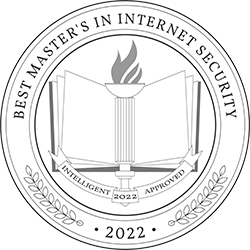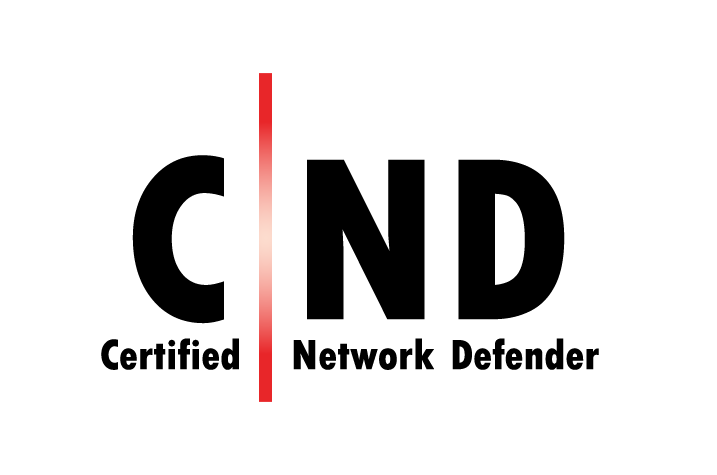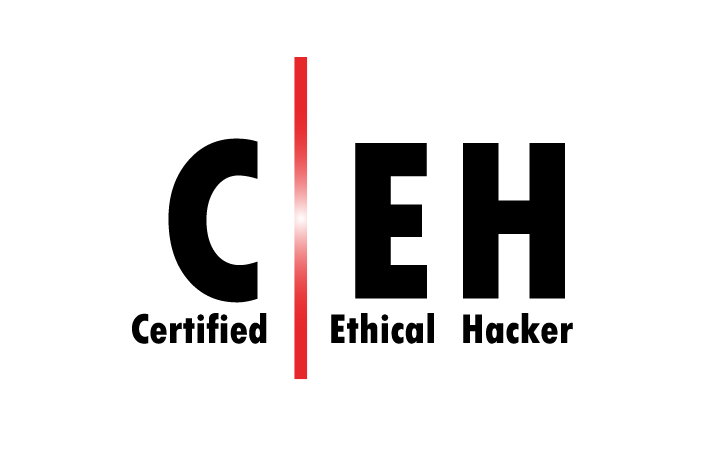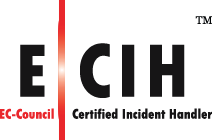- About Us
-
- Online Degrees
- Services
-
-
Information
-
Benefits
-
Forms
-
-
- Financial Assistance
- Veterans
- Updates
-
"*" indicates required fields
The Incident Management and Cyber Operations specialization focuses on handling and responding to various security incidents, identifying vulnerabilities, and taking appropriate countermeasures to prevent information failure risks.
In this cybersecurity master’s degree specialization, you will be trained on incident handling, disaster recovery, business continuity, and much more.
Graduate
12 (36 Credit Hours)
2 Years – 10-week terms (4 per year)
6th Oct, 2025
Online (Flexible with Hands-On Experience)
EC-Council University has been ranked in the “Top 45 Online Master’s in Internet Security Degree Programs” by Intelligent.com, highlighting our high standards of quality postsecondary education.

| Certifications | Master’ Degree Courses | EC-Council Examination Price | ECCU Student Price |
 | ECCU 500 Managing Secure Network Systems | $350 + $100 Application Fee | Included in the Program |
 | ECCU 501 Ethical Hacking & Countermeasures | $950 + $100 Application Fee | Included in the Program |
 | ECCU 513 Disaster Recovery | $350 + $100 Application Fee | Included in the Program |
 | ECCU 522 Incident Handling and Response | $199 + $100 Application Fee | Included in the Program |
Ans. Business continuity can be explained as a program under which an organization analyzes risks, maps business functions, and implements risk mitigation measures. On the other hand, incident management is more tactical. It can be defined as an ongoing effort to prepare for response and recovery after an attack.
Ans. Business continuity planning (BCP) is a roadmap that an organization follows in an emergency. A BCP is a set of pre-drafted, pre-determined protocols that explain how a business should overcome an attack. A business continuity plan is important for quality control, risk management, product continuity, and service excellence.
Ans. A business continuity manager is responsible for creating plans that can keep a company’s functioning going after a cyberattack, or any disruptive event has taken place. They need to do a detailed companywide risk assessment and business impact analysis to determine the extent of the damage. Candidates interested in business continuity can pursue EC-Council University’s Master of Science in Cyber Security (MSCS) with a specialization in Incident Management and Business Continuity.
Ans. According to PayScale, the salary of a business continuity manager ranges between $65,000 and $128,000. Their average salary in the United States is $97,529. ON the other hand, the average salary of an incident manager is $81,727. Cybersecurity aspirants can pursue a business continuity program to apply for the above mentioned roles.
Disclaimer – EC-Council University does not guarantee jobs or salary packages mentioned -above. Please refer to the sources mentioned to learn more.
Most of our students work full-time. They study in the evenings and on weekends. You should plan to spend 10 to 12 hours on coursework each week per class. Most students take either one or two classes each term, depending on how much time they have available to devote to classes.
This foundational core course introduces students to basic English writing skills and research methods also including APA style writing, citing sources, determining when a website is credible, effective communication, outlines, and collaboration. Students will write/present portions of the above in the course in various formats.
This course will lay a broad foundation of understanding the processes of global business principles for a varied population of students who work in businesses of all kinds (including the IT and IA fields). It covers the latest changes in Information Technology for Business, including computer-aided manufacturing (CAM), application software, and recent ethical issues arising from IT. Real-life business examples are added throughout the course that reinforce the business principles.
This foundation course deals with organizational behavior and allows the technology practitioner to experience the basic facets of organizational theory and define the skills required to understand and apply the theory to a real organizational setting. Elements of the course are organizational structure, effective communication, team building, ethics, and project management as seen through the organizational lens.
Cyberspace has increased human communication, connectivity, creativity, capacity and crime by leaps and bounds in the last decade. For all of the positive aspects it offers, it offers as many negative aspects. Those negative aspects are explored and developed by everyone from the high school challenge hacker to an international terrorist. The IT criminal threatens businesses, governmental agencies, militaries, and organizations of every kind. This course will survey the spectrum of psychological attributes that may make up the profile of the IT criminal.
This course encompasses an extensive research project about cross-cultural differences in leadership conducted by a group of researchers in 62 countries. It lays a foundation for understanding the process of leadership. The study describes the roles, functions, and impact of global leadership concepts. Many team exercises provide the speed at which leaders must work. Research and views into how most cultures respond to this area of management are provided.
This course focuses on evaluating network and Internet security issues, designing and implementing successful security policies and firewall strategies, and exposing the system and network vulnerabilities and defending against them. Topics include network protocols, network attacks, intrusion detection systems, packet filtering, proxy servers, Bastion hosts and honey pots, hardening routers, hardening security, email security, virtual private networks, and creating fault tolerance.
This course focuses on configuring a secure Linux network using the command line and graphical utilities. Emphasis is placed on file-sharing technologies such as the Network File System, NetWare’s NCP file sharing, and File Transfer Protocol. Additional topics include making data secure, user security, file security, and network intrusion detection. Students will be required to take on the role of problem solvers and apply the concepts presented to situations that might occur in a work environment.
This course focuses on how perimeter defenses work, how intruders escalate privileges, and methods of securing systems. Additional topics include intrusion detection, policy creation, social engineering, DoS attacks, buffer overflows, and virus creation.
This course focuses on the mastery of the advanced penetration testing skills that real-world practitioners face in the job. The course pushes students beyond the limits of the traditional curriculum to broaden knowledge to pursue an independent inquiry. Topics include Web Application Penetration Testing, Wireless Penetration Testing, IoT Penetration Testing, OT and SCADA Penetration Testing, Cloud Penetration Testing, Binary Analysis and Exploitation, and Report Writing and Post Testing Actions.
This course focuses on cybersecurity disaster recovery principles including assessment of risks to an enterprise, development of disaster recovery policies and procedures, the roles and relationships of various members of an organization, preparation of a disaster recovery plan, testing and rehearsal of the plan, implementation of the plan, and recovering from a disaster. Additional emphasis is placed on identifying vulnerabilities and taking appropriate countermeasures to prevent information failure risks.
Upon successful completion of this course, students may take the EC- Council Disaster Recovery Professional (EDRP) certification exam through EC-Council.
Whether an organization has experienced a disaster, downsizing, a shift in culture, or a change in leadership, it will experience organizational change. This change demands remembering the past, finding ways to recover from it, engaging the future, and energizing change. Leaders in change must have the skills to identify, structure, forecast, envision, design, plan, implement, account for, and lead a team through change that has been strategically planned to advance the organization. Such a leader is a change agent and must understand the process, expectations, and nuances of change.
The Capstone is the summative experience designed to allow students to demonstrate all program outcomes and draw on the knowledge and skills learned throughout the entire program. Students can enroll in the Capstone after successful completion of all core degree requirements but must be within six semester credit hours of graduation. Students must demonstrate attainment of a 3.0 cumulative grade point average and have the Registrar approval to registering this class.